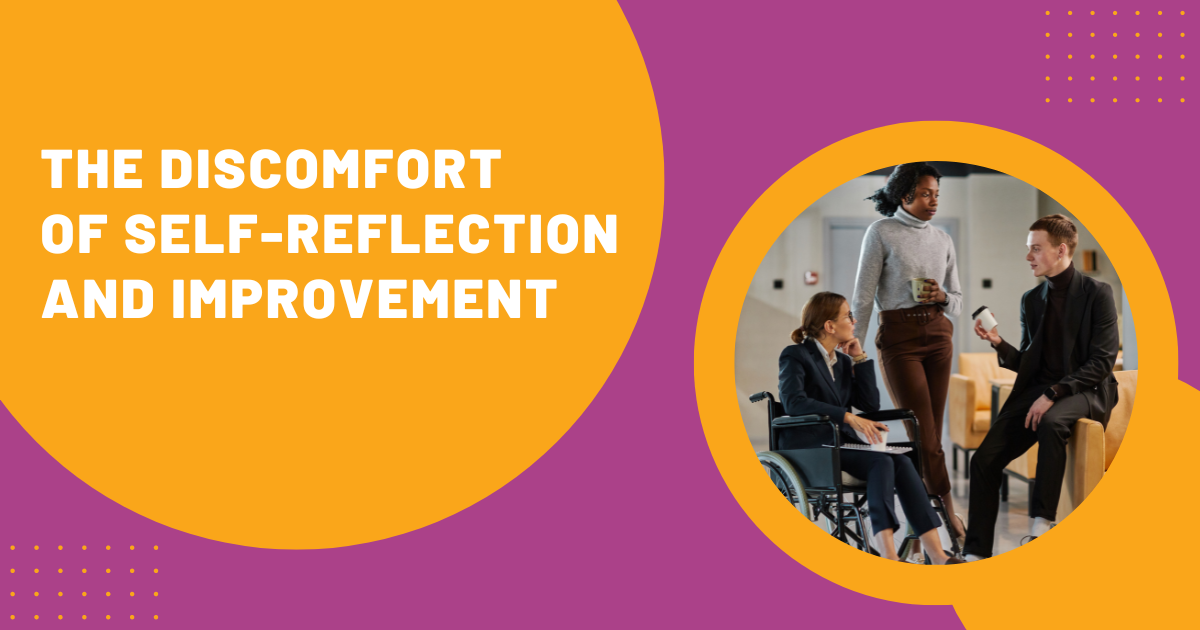Resources > Blog > The Discomfort of Self-Reflection and Improvement

It is challenging to look in the mirror and ask – and honestly answer – “Was I disrespectful today?”
Perhaps more specifically:
- Did I sound defensive and hostile when someone asked me a simple question?
- Did I sound accusatory and judgmental when I was the one asking the question?
- Could I have embarrassed someone based on how, where and when I spoke to them?
- What might my tone of voice or email have sounded like to others – Dismissive? Condescending? Arrogant? Threatening?
- Did I recklessly or maliciously gossip about someone at work today? Did I share information that was not mine to disclose? Did I relay sensitive personal information about someone that had nothing to do with work?
There are several other examples of ways in which we might inadvertently (or intentionally) disrespect those around us. Those set out above are the most common ones that I encounter as a workplace investigator and mediator.
When answering this reflective question, it is honest and human to answer “yes” or even “perhaps”.
It is then helpful to reflect on how we could “do better” next time.
However, it is hurtful and counter-productive to answer “Yes – and here’s why” (with an air of “enthusiastic entitlement”).
Many times, people admit to engaging in disrespectful behavior (“I sure told them!”) and proceed to justify having done so. They immediately deflect attention on to the other person’s past behavior, beliefs or decisions to justify their own disrespect. “They did this” or “They said that”.
Workplace culture will never improve if people believe that they are entitled to treat others rudely or meanly “in certain circumstances”. It just won’t happen. Mean and disrespectful conduct never effect the positive change we wish to see. Mean behavior triggers mean reactions which trigger further mean behavior. With this attitude of “justified incivility”, we will continue to see attacks and counterattacks of hurtful conduct which together will cause significant personal and organizational harm.
We need to stop treating others inhumanely in the name of “boundary-setting” and “advocacy”. We have a right to establish and impose boundaries provided that we do so lawfully and respectfully. We have a right to advocate for necessary change provided that we do so lawfully and respectfully. However, our personal pain points and passion projects do not allow us to be an “exception to the norm” when it comes to behaving in a lawful, respectful and humane manner.
I am perplexed and disheartened at the increasing number of people who enthusiastically assert their (non-existent) right to treat others with disrespect. Ironically, these are often the same people who also assert the need for a more respectful workplace culture.
Workplaces cannot improve unless everyone commits to treating everyone around them with basic civility and respect: no exceptions, no excuses.
Meanness isn’t a good look – and it’s certainly not a smart strategy – when it comes to building healthy workplaces.
We all can – and must – do better.
To continue the conversation about fostering respect and civility in the workplace, and to address any questions or concerns you may have, please get in touch with me at [email protected]. Let’s work together to create a healthier, more respectful organizational culture.
Click here to read more blogs about building respect in your workplace.
